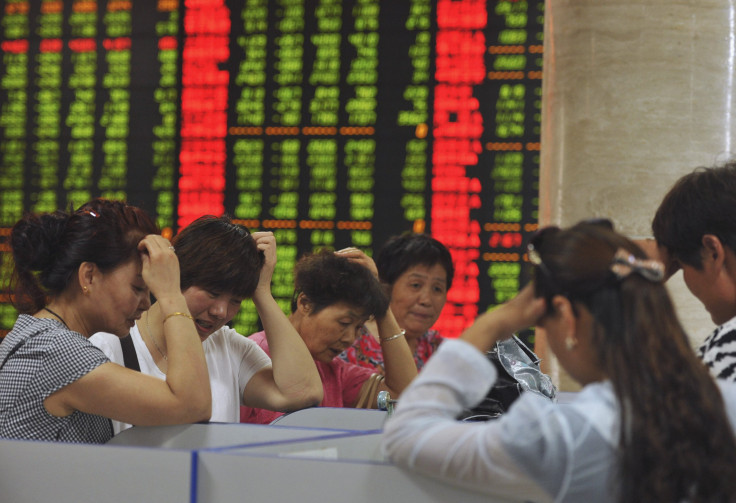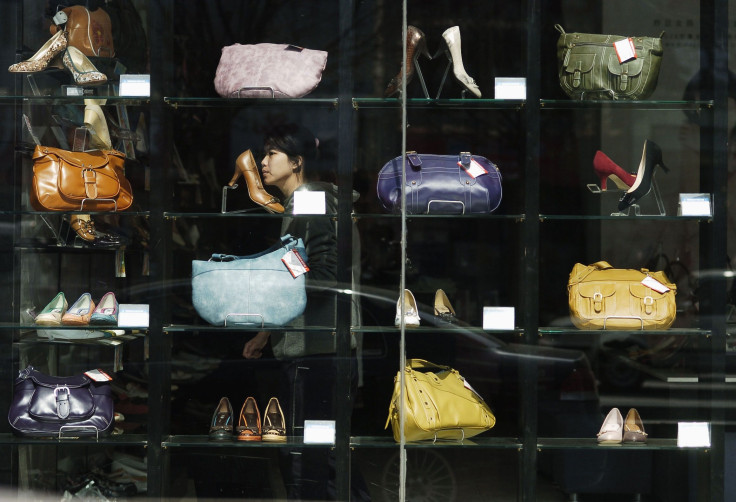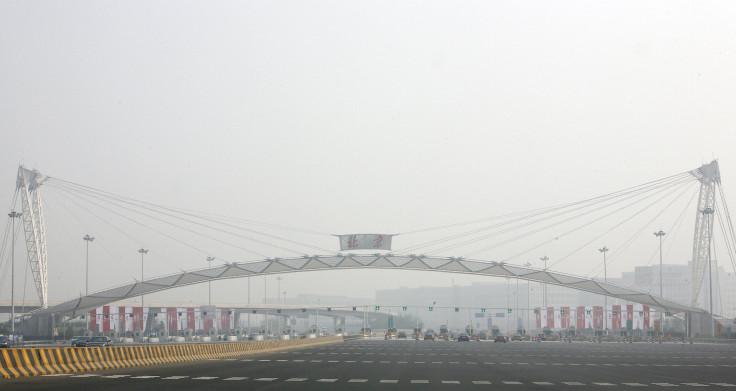Chinese Markets Fall, Asian Markets End Mixed, On Concerns About Latest Chinese Economic Data, And Possible US Rate Rise

SHANGHAI -- Worries about latest Chinese economic data, and the impact of a possible rise in U.S. interest rates later this week, saw falls on markets in China, Tokyo and Seoul Monday. The main Shanghai Composite Index fell by almost 2.7 percent, prompting one Shanghai-based news website to roll out the headline ‘Black Monday’ for the second time in less than a month.
Analysts said the fall, which followed gains in the second half of last week, was actually relatively small by the volatile standards of China's markets, particularly compared to the dramatic plunge of more than 8 percent on Monday three weeks ago. Nevertheless the secondary Shenzhen Composite Index dropped sharply, losing 6.6 percent of its value, while the high-tech ChiNext Index dropped by 7.5 percent.
In Japan the Nikkei Index fell 1.6 percent, while South Korea’s Kospi Index closed 0.5 percent lower, and Singapore’s Straits Times Index fell almost 0.6 percent. Markets in Australia, Hong Kong and India bucked the downward trend, with the ASX 200 closing 0.5 percent higher in Sydney, and the Hang Seng Index up almost 0.3 percent, while the BSE Sensex was up 0.96 percent.

Analysts said concerns about bad bank loans were partly to blame for the fall on Chinese markets. But a wider range of data announced by China’s National Bureau of Statistics (NBS) on Sunday also affected investor sentiment. China’s industrial output grew 6.1 percent year-on-year in August, the NBS said -- higher than the previous month’s figure of 6 percent, but lower than some expectations of about 6.4 percent.
Observers were also concerned that growth in China’s fixed-asset investment -- seen as important in helping the country tackle a slowdown in GDP growth caused partly by falling export orders -- slowed in August. Though such investment grew by 10.9 percent over the first eight months of the year, this was the slowest rate for 15 years, according to Chinese state media.
Analysts said there was some positive news in the latest figures, with retail sales growth picking up slightly in August, rising 10.8 percent year on year -- compared to 10.5 percent in July. Property sales, which slumped in 2014, also grew, by 8 percent year-on-year in the first eight months of the year -- though new property construction fell by 18 percent.

Analyst Andy Rothman told International Business Times last week that slowing real estate construction -- while affecting demand for raw materials, which has hit China's overseas suppliers -- was to be expected as China had built so much housing over the past decade -- and he said that rising sales of second-hand homes were providing a new growth point for the economy. He also said that with the retail and real estate sectors performing relatively well, slowing export growth and GDP growth did not mean that China's economy faced a crisis.
Analysis from Capital Economics, quoted by Hong Kong’s South China Morning Post, also noted that electricity and cement output rose last month, while the activity of China’s private firms -- a key area of the economy -- “grew at its fastest pace this year” in August.
China says it created 7.2 million new jobs in the first half of the year -- a major step toward its official target of 10 million jobs for the year. However the official China Daily newspaper said Monday that data for August showed employment contracting, and suggested that the government “may have to introduce more support measures.”
China has already cut interest rates five times in the past 10 months to encourage growth and borrowing. And China’s Ministry of Finance last week pledged to speed up investment in new infrastructure in the remaining months of 2015.
However the authorities are now seeking to fund more such investment through public-private partnership arrangements, which are still relatively new in China -- but some analysts say the strategy could face challenges. Some commentators also say that China’s current anti-corruption campaign has made local officials less willing to approve grandiose projects, for fear of being accused of extravagance -- though the Ministry of Finance pledged last week to encourage local governments to issue bonds to raise capital for such projects.

China’s cabinet, the State Council, at the weekend also announced guidelines on reforming the country’s remaining state-owned enterprises, which dominate key sectors of the economy, including natural resources, energy and telecommunications -- and are seen as a drag on the economy as they make up the majority of companies listed on China’s stock market, while private companies find it harder to list.
The State Council said that moves toward greater marketization of state enterprises over the next five years would lead to more private investment and reforms of their management structure. State media also said Monday that the government would channel non-state capital into sectors including resources, logistics and telecommunications.
And despite slowing data China continues to attract new foreign investment: Universal Studios at the weekend sealed a contract on a new theme park for the capital Beijing, which Chinese media said could attract $8 billion in investment and would be the company’s largest worldwide.
© Copyright IBTimes 2024. All rights reserved.





















